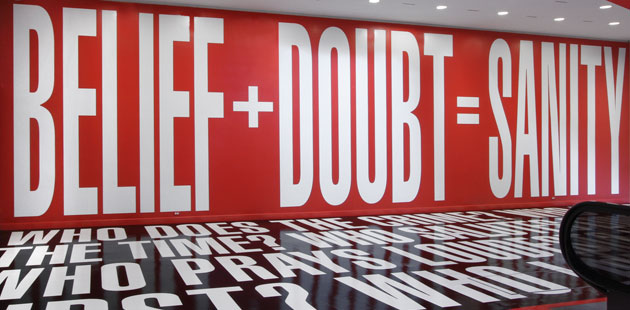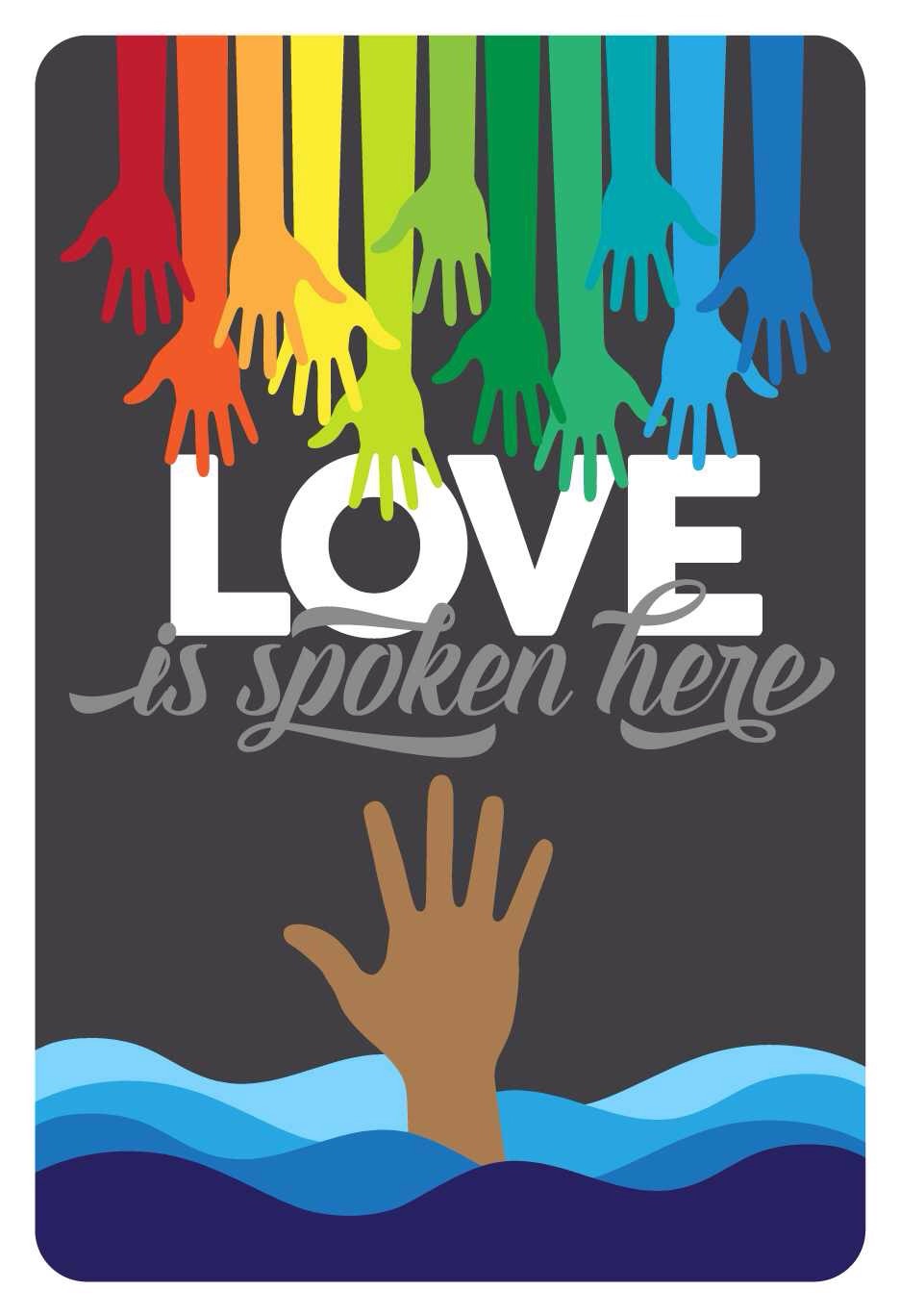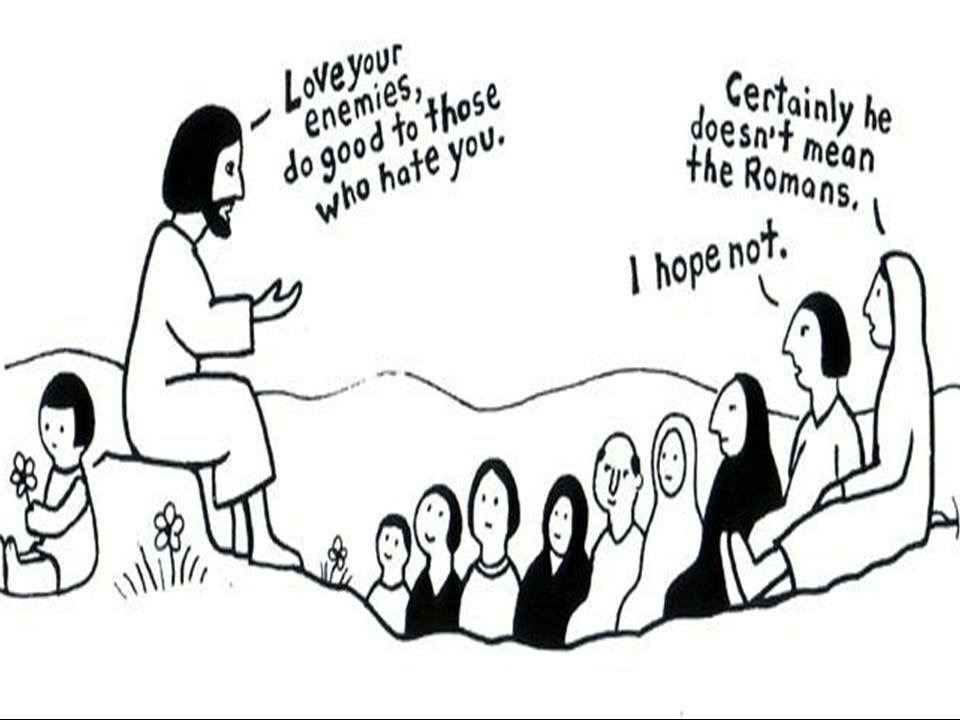By Richard D. Poll
For me, faith is what an earlier Paul said it is: "The substance of things hoped for, the evidence of things not seen." (
Heb. 11:1.) It transcends empirical knowledge, and because what humanity learns by reason and experience is both finite and fallible, it may even contradict such "knowledge." Where a faith proposition and a knowledge proposition seem contradictory, l feel no compulsion to choose between them
unless it becomes necessary to act upon one or the other. Many issues that strain relations between some good Latter-day Saints who are present tonight and some good Latter-day Saints who are not here do not require resolution. For pragmatic and doctrinal reasons, I believe in suspending judgment in such cases.
I am, in short, a Latter-day Saint who believes that the gospel is true, but has an imperfect and evolving under standing of what the gospel is. My testimony will, I suppose, be of most interest to "people like me"--people for whom neither dogmatic fundamentalism nor dogmatic humanism provides convincing answers to lifes most basic questions.
The pillars of my faith are two of the Articles of Faith defined by the Prophet-Founder of my church and an interpretive principle provided by a Founding Father of my country.
The first article of faith affirms: "We believe in God, the Eternal Father, and in His son, Jesus Christ, and in the Holy Ghost."
The ninth article of faith affirms: "We believe all that God has revealed, all that He does now reveal, and we believe that He will yet reveal many great and important things pertaining to the Kingdom of God."
James Madison cautioned: "When the Almighty himself condescends to address mankind in their own language, his meaning, luminous as it must be, is rendered dim and doubtful by the cloudy medium through which it is communicated."1 Because I believe with Madison that everyone, including Paul and other prophets, sees eternity "through a glass darkly" (l Cor. 13:12), prophetic infallibility, scriptural inerrancy and unquestioning obedience are not elements of my faith.
I believe in Heavenly Parents who care about me but who will not, perhaps cannot, compel me to obey.
I have hope in Christ, and I have drawn strength from the Comforter of whom he spoke.
I see history in terms of human strivings to discover divine realities and follow divine principles. Flashes of prophetic insight have elevated those efforts, and Jesus of Nazareth, in his life, death, and resurrection, uniquely embodied those realities. Joseph Smith, a prophet like Moses, Peter, and Alma, gave inspiration and momentum to the gospel dispensation in which,
as I have written earlier, I find answers to "enough important questions to live purposefully without answers to the rest."
In The Church of Jesus Christ of Latter-day Saints I have found ideas, opportunities, and challenges around which I have organized my life. Next to my family, my church is the most important component of that life. I am proud of its contributions to bettering the human condition and grateful for its contributions to my own.
If I were in charge of the Church, I would make some changes. Since I am not, I must be patient, but I need not be passive. As a historian, I know that changes have occurred, and the ninth article of faith assures me that they will yet occur. As I reflect tonight upon the building and testing of my faith, I will offer a few suggestions.
Pivotal in the evolution of my personal testimony was my family's move from Salt Lake City to Texas in 1929, when I was ten years old. In consequence, I had no close Mormon friends, except my younger brother and sister, in junior and senior high school and five years at Texas Christian University. I found many non-smoking, non-drinking friends and in the process lost any categorical "we-they" perception of the world that I might have brought with me from Utah. At eighteen I was both superintendent of the Fort Worth Branch Sunday School and president of the TCU Student Christian Association. My two closest male friends were a Bible fundamentalist and a liberal Campbellite, neither of whom was more persuaded by my testimony than I was by theirs. I decided then, and subsequent experience has not changed my mind, that people convert to Mormonism and open themselves to the witness of the Spirit when they are dissatisfied with some important aspect of their tangible or intangible condition, and they remain converted when they find in the Church a sufficient and enduring response to that need.
I was confident that I would marry a bright young woman who would be already Mormon or ready to join the Church, either for the gospel's sake or for mine. As it turned out, the lovely and intelligent Nebraska Methodist whom I left behind in 1939 for a mission to Germany sent me a "Dear John." The war that caused me to be transferred to the Canadian mission later brought me, as an Army/Air Force instructor in Miami Beach in 1943, together with a lovely and intelligent Mormon from Utah. Seven weeks later we were married in the Salt Lake Temple by the same Joseph Fielding Smith who had united my parents in 1916. I am reluctant to attribute World War II to a providential design to bring Gene and me together, but now at our golden anniversary we do think that finding each other was some kind of miracle.
Texas Christian University had a profound influence on my life and faith. It made me a political liberal, a teacher, historian, football fan, and lover of peace. As a senior I was chosen student body president in an uncontested election because I was the only student council member still on speaking terms with all factions in the controversy that forced my predecessor to resign.
Throughout my life I have aspired to be a mediating, moderating, and motivating influence.
At TCU I learned Burke's warning against apathy: "
All that is necessary for the triumph of evil is for good [people] to do nothing," and Goethe's warning against zeal without knowledge: "
There is nothing so terrible as ignorance in action." I have quoted both in hundreds of history classes. A course in the New Testament introduced me to another epigram that has influenced my deportment in Church classes, both as teacher and student: "
The function of religon is to comfort the afflicted and afflict the comfortable." If I were ever asked to speak in general conference, that would be my text.
The primary activities to which I have devoted the last fifty years have all helped to shape and test my faith:
1. My relations with Gene, our three daughters, their partners, and our seven grandchildren have been central to my life. Had I experienced "consciousness raising" earlier, I would probably have been a better husband and father, but Gene and I worked hard at building a traditional LDS home and family and both the effort and the outcomes have brought us happiness. We have faith in the proposition "Families Are Forever," and we recently watched a grandson sing the lead in
Saturday's Warrior without letting theological questions mar our enjoyment of the occasion.
2. My relations with the Church have included attending meetings regularly, going to the temple occasionally, and accepting callings ranging from branch president, bishop's counselor, and high council member, to officer and teacher in every organization for which I am gender-qualified. Currently I teach the high priests along with a sweet-spirited and knowledgeable retiree from the BYU religion faculty. The class members seem to find his scripture-based answers and my scripture-based questions equally engaging. If the hours devoted to teaching preparation, informal gospel conversations, and unofficial Church-related gatherings are added to the hours in scheduled meetings, both my income and my time have been tithed, and I begrudge neither offering.
3. Except for the appointment as administrative vice president that took me to Western Illinois University after twenty-two years at BYU, my professional life has been closely linked to Mormonism.
As a teacher and writer, I have observed how encountering history affects religious perspectives. It nudges some people toward disbelief and drives others into denial, but it provides more questions than answers. History is hard on myths and traditions that are contradicted by non-Hofmannesque evidence, but it neither proves nor disproves the central faith propositions of the gospel.
My own life with history, including the history of my own life, leads me to these observations about my church and my personal testimony:
I belong to a church whose past and present leaders, with a few exceptions, have been men and women of ability, integrity, and devotion. I occasionally differ with their collective decisions or think uncharitably about individuals among them, but I believe that they seek to serve God and that, taken as a whole, the fruits of their labors are good. As my brothers and sisters, they are entitled to my sympathy, support, and suggestions.
I sustain fifteen of my church leaders as prophets, although history tells me that leading any organized religion is primarily a priestly rather than a prophetic function. As voices crying in the wilderness,
prophets like John the Baptist and Joseph Smith challenged the ecclesiastical status quo. Among recipients of each new dispensation of divine truth, however, there quickly arises concern for preserving and protecting what has been received.
Among today's prophet/high priests, there seems to be intense preoccupation with what may happen if unauthorized hands touch the ark of the covenant. There is reluctance to consider any unsolicited suggestion even if "it seems so reasonable and right." I pray that these understandable concerns do not produce insensitivity to changing needs among the Saints and to new possibilities.
I believe that
revelation may come through visions, dreams, and visitations, as God wills, but my Madisonian skepticism rejects the notion that the mind of a prophet--any prophet--is a fax machine linked to a divine transmitter. The history and scriptures of the Restoration testify that almost every revelation is confirmatory. It responds to a proposed
answer to a pressing question, and
the timing and substance of both question and tentative answer are shaped by the character, experiences, and needs of the questioner. I believe this is true even if the petitioner for divine guidance is a prophet.
I believe it is my right to help shape the context and content of future prophetic inquiries, even as I have tried to do in the past, and I pray for wisdom and patience in asserting that right.
I see merit in the apostolic commitment to support decisions once collectively made, but a wonderful range of personal contacts has convinced me that those who wear the
prophetic mantle do not all think alike and that they certainly do not always subscribe to the dictum, "
When the prophet speaks the thinking has been done."
For me, their humanness as individuals makes their collective accomplishments more remarkable.
I sustain them in their difficult callings with the realization that, taken as a group, they are neither more nor less singleminded, devoted, and inspired than their predecessors.
Let me illustrate this component of my testimony with three personal experiences:
1.When BYU was recruiting students over forty years ago, John A. and Leah D. Widstoe rode to California with Gene and me in our Model A Ford. It was a great opportunity to get to know the man whose book
A Rational Theology, helped shape my own beliefs and
the woman primarily responsible for expanding the Word of Wisdom into a comprehensive health code. Sensitive to the situation, Gene and I ordered whole wheat toast with our breakfast. When the Widstoes joined us, they ordered white.
2. In consequence of my publicly criticizing Joseph Fielding Smith's book
Man, His Origin and Destiny, Gene and I had the remarkable opportunity to meet privately with Church President David 0. McKay and immediately thereafter with President Smith, and to hear them give flatly
contradictory answers to the question, "Is the concept of evolution compatible with the gospel?" We remain to this day thankful that the ninth article of faith sheltered us from having to decide which of these venerable prophets was expressing inspired truth.
3. On more than one occasion I heard
President Hugh B. Brown speak of the difficult predicament of the counselor in the First Presidency who has "responsibility without authority." Both he and President Henry D. Moyle, his strong-minded predecessor as first counselor to President McKay, were ultimately defeated by it.
It is true that the Church has developed a "back-up system" that insures continuity in operations, but it is historically demonstrable that the internal dynamics of the apostolic councils change when the one person who is doctrinally authorized to speak for God to the whole church is unable to lead effectively. I pray, I hope, and I believe that options for accomplishing for the Church what the
twenty-fifth Amendment has achieved in the national government are under consideration among our prophet-leaders, and that
an appropriate solution will in due course receive divine confirmation.
I belong to a church whose structure, programs, policies, and doctrinal interpretations are in constant flux, as the concept of continuing revelation requires that they be. My testimony has been strengthened by most of the changes that have occurred since I was required to hold my left hand behind my back while passing the sacrament, and I expect to agree with most of the changes that will yet occur. On the premise that recording them here puts them into the context for continuing revelation, I offer two prayerfully considered suggestions:
1. The Sunday meeting schedule should be redesigned to address at least these three shortcomings of the present block plan: The strain on the attention and patience spans of little children and those who teach them; the difficulties inherent in trying to produce two short, safe, significant classes in quick succession; and the insufficiently met need for informal social interaction among ward members.
2.
The "woman question," clearly a subject of profound concern among our prophet-leaders today, should be carried beyond the present laudable focus on curbing abuse of women and children to a consideration of the full implications of gender equality in the kingdom of God.
Changes requiring only policy modifications might include admitting women to the ritual blessings of babies, enhancing the opportunities and recognition given for teen-age girls, encouraging female children to consider missions, and including active LDS women in decision making--as distinct from decision implementation--at the ward and stake levels.
This is an issue no less fundamental than
the plural marriage question that produced a revolutionary revelation a century ago and
the racial problem, the revealed solution to which is revolutionizing the Church today. What does the future hold? Surely this is one of the great and important things on which we can anticipate further light and knowledge.
It is exciting and faith promoting to belong to a church in which many, many men and women of ability and commitment face challenges as great as any earlier generation. While our prophet-leaders confront the
daunting task of separating traditions and customs from gospel universals,
they remodel organizations, policies, programs, even priesthood quorums in
ways that suggest both flexibility and inspiration. It seems clear to me that
they are asking many of the right questions and receiving many excellent answers. Most of their public and private counsel focuses on Christ's precepts for living.
When things are said and done that suggest the thirty-ninth verse of Doctrine and Covenants 121 ("We have learned by sad experience that it is the nature and disposition of almost all men, as soon as they get a little authority, as they suppose, they will immediately begin to exercise unrighteous dominion"),
or the fable of the king's new clothes, we may still choose, aware of our own spiritual nakedness, to help create a better royal wardrobe rather than abandon the court and the kingdom. Reinforcing my resolve to carry on is my conviction that among our dedicated and prayerful prophet-leaders there must be a growing awareness that
the present bureaucratic approach to us Mormon mavericks is not only counterproductive but morally questionable. As
we anxiously discuss what to do about the Brethren, we should derive encouragement, I think, from the clear signs that they are anxiously concerned over what to do about us.
My life and my study of history have made me optimistic.
Things can be better than they are, and they will be if we rise more resolutely and joyously to the faithful proposition: "I am a child of God." They can and will be when those who must "prove all things" (
1 Thes. 5:21) and those who steadfastly "hold fast that which is good" realize that they are defending two sides of the same divine formula. Because I believe that God has an interest in the outcome,
I confidently anticipate that this church--my church--will continue to change,
repenting and improving in response to continuing revelation. In this expectation I close with an adaptation of my remarks at last year's symposium:
Encouraged by the apostle Paul's observation, "A little leaven leaveneth the whole lump" (
Gal. 5:9),
I aspire to live out my life as a Liahona Latter-day Saint whose questioning testimony perplexes some and comforts others of his brothers and sisters.
I intend to frame my questions, make my suggestions, and bear my witness with charity, humility, and persistence. Thus I hope to help produce a Mormon chorus in which almost all the singers hear the dissonant sounds of the
alternate voices as
polyphonic enrichment of the message of
the gospel music.



















